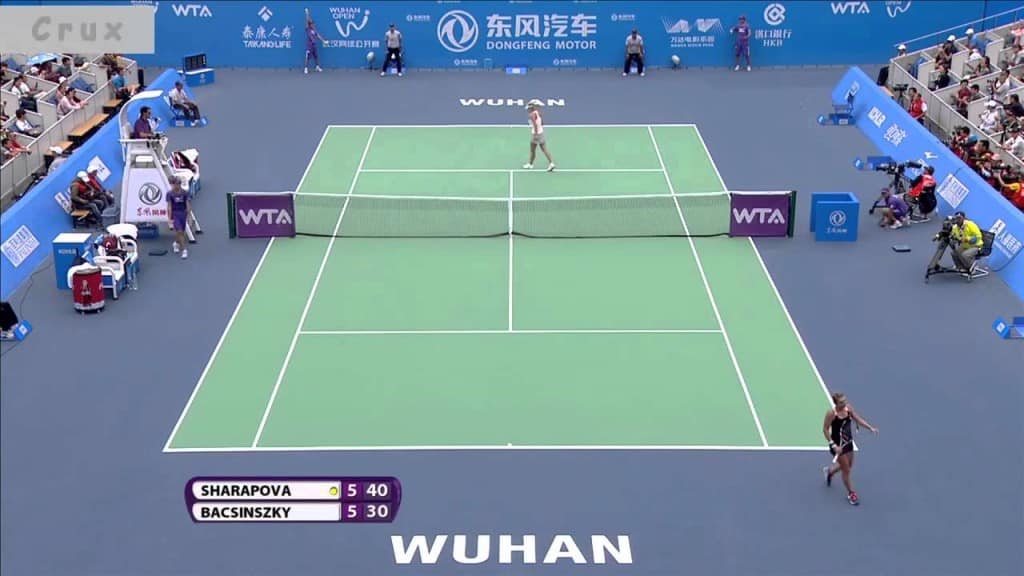“They always say time changes things, but you actually have to change them yourself”.- Andy Warhol
There have been many exciting matches in Wimbledon, but to me, there is only one true fairy tale; It is the story of the 26 year old Swiss player Timea Bacsinszky.
For the last few months I have been watching her career evolve with great joy. This is because she really illustrates what personal development really is about. And although she has lost in the quarterfinals of maybe the most prestigious tournament of the world, she is a true champion.
I remember having seen her a few years, playing my former client Dinara Safina. Already then I thought to myself that she was an extremely talented girl. Sadly I barely ever saw her name pop up again at bigger events and even heard she had retired.

And then suddenly, last year, her name popped up at the Wuhan Open 2014, where she beat Maria Sharapova. Ever since, at the late ‘’tennis age’’ of 26 years old, she has become almost unstoppable, reaching the semifinals of the French Open, and the quarterfinals in Wimbledon.
So what changed? What has triggered these recent successes? I researched what the Swiss press to find answers to this question, and would summarize her story as follows:
Timea was a top prospect as a young girl, and was pushed vehemently by her dad, who wanted nothing more but to see his daughter become a star. Eventually, the pressure became too much, her joy faded away, and she was no longer able to perform on the tennis court. In fact, for a short while she even stopped playing altogether and instead entered an hotelier school.
Following the consistent encouragement by a friend, Timea finally agreed to speak with a counselor, which really was the beginning of this phenomenal comeback. The Swiss girl found back both her joy and strength to pursue the sport she loved, but this time on her terms.
The story of Bacsinszky touched me on many levels, especially now that I am a dad myself:
Firstly, it showed me that although most parents really only want the very best for their kids, they often unknowingly cause more harm when pushing them towards a career. This is especially when their kids pursue a competitive sport like tennis at an early age.
In such circumstances, parents often want their kids to succeed at every prize. After all, in many cases they too have sacrificed their time, money and efforts into the career of their children. Unfortunately however, these kinds of ambitions can backfire as even the greatest kind of victories can become worthless if a child does not experience some kind of meaning and joy. As a result, they may unconsciously start rebelling against the parent’s plans, by making themselves fail.
Secondly, the story of Timea also illustrates to me the need to take responsibility: We can blame parents and coaches, and often rightly so, but in the end it is our own duty to ensure we live the life we desire. This is easier said than done, but Timea’s courage to work with a counselor showed her determination to take her life into her hands and start flourishing – and the rewards can be witnessed in the joy and success she is currently experiencing.
And this to be is the key: The ultimate currency of success is happiness.
The hard work that is required to win many tennis matches and become a top professional will only feel worthwhile, if a player is also able to enjoy this process, by experiencing many moments of joy and pleasure.
In fact, I am convinced this is the secret to any kind of sustainable success. Once we enjoy what we do, we can dig deeper towards extraordinary achievements.